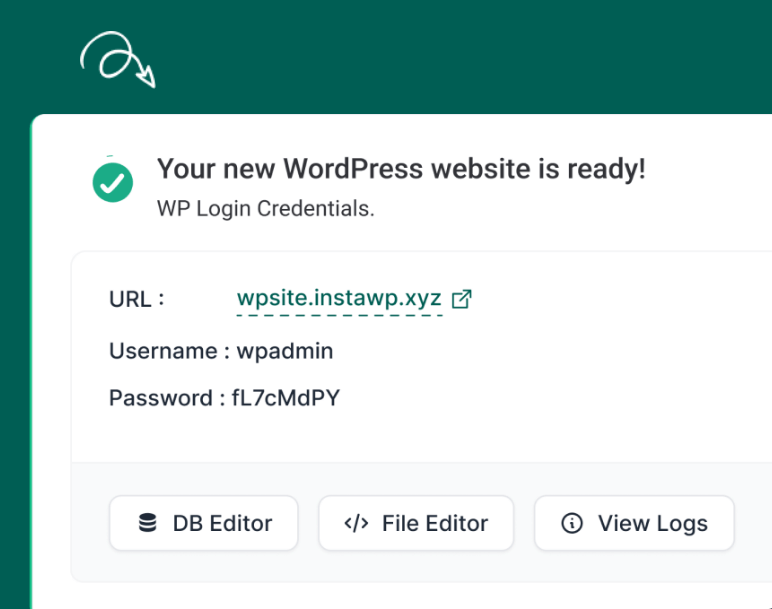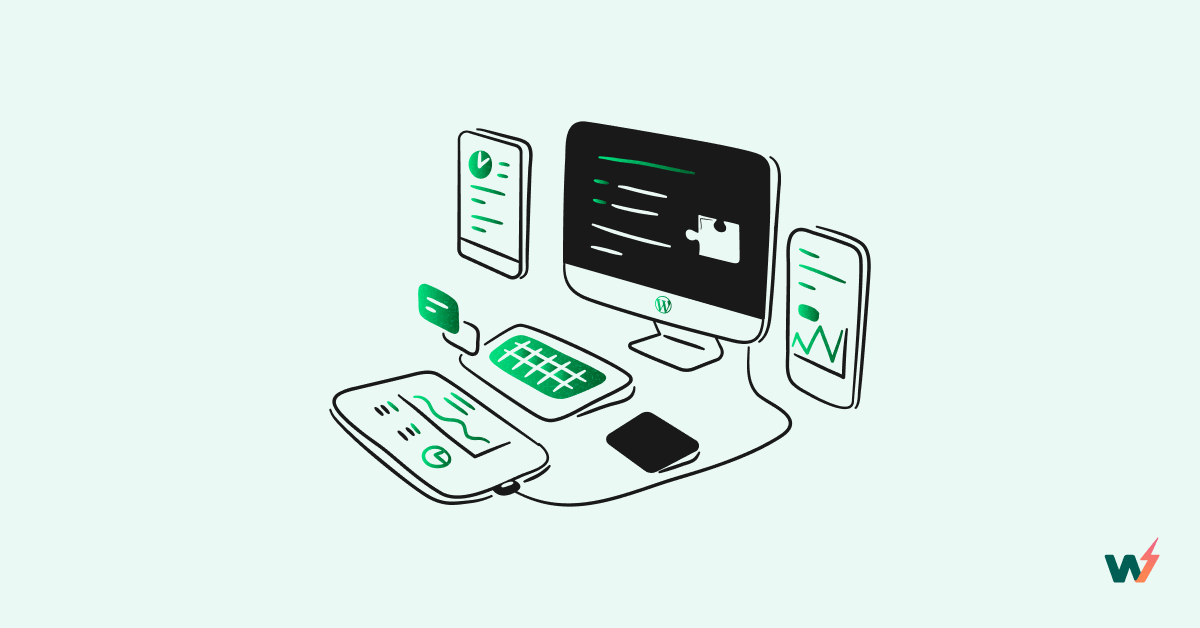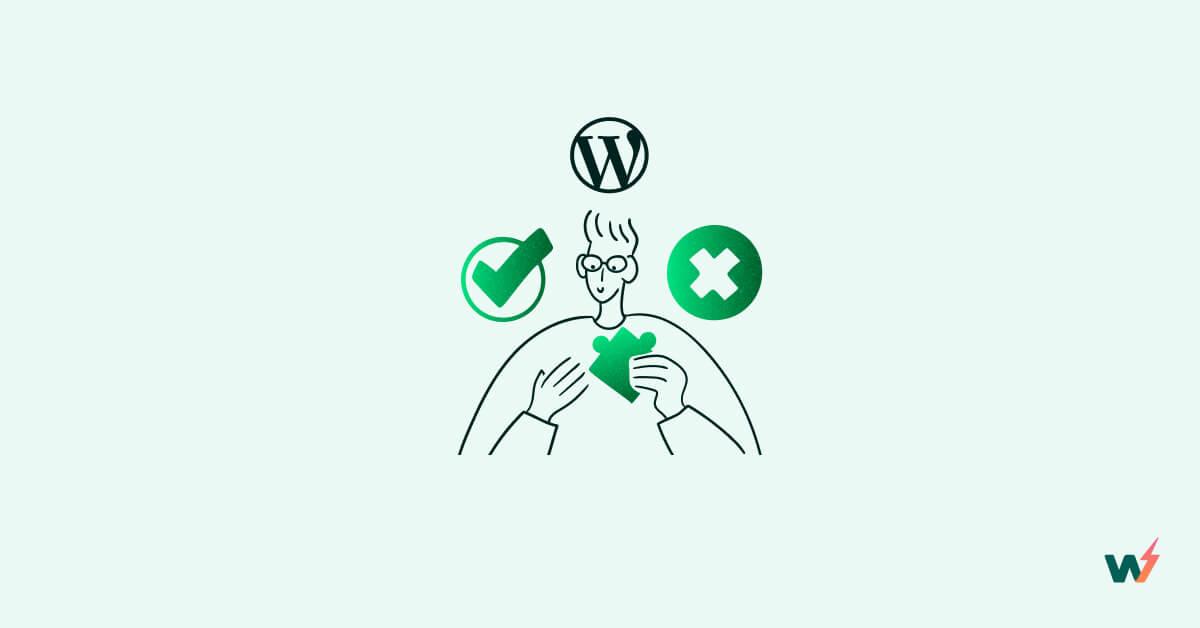The success that might come with a carefully designed WordPress website is unimaginable. From winning hearts to scoring high rankings, a professional website can do a lot more things for a business. So, building a WordPress website is like an investment.
But, just like an investment, you first have to invest in a WordPress website to enjoy a lucrative premium. Now, the legit question to ask here is:
‘What is the cost of a WordPress website?’
If you also don’t have any idea about it and want to learn it in detail, this post is just the right resource to refer to. It includes expert insights on how much to charge for a WordPress website if you’re a developer and what the one-page WordPress website costs if you’re a business. So, let’s get started.
Understanding WordPress Website Costs
The first move that one must make towards understanding the cost of a WordPress website is knowing the factors that investment is required. There are multiple components of a WordPress website, and each wants investment. So, let’s break down each of those components to have a rough idea of the cost of a WordPress website.
- Domain
Just like we all have a home address, websites have a domain, and it’s a very important component of a website as it is the online address. Domain prices vary based on the registrar and the domain name selected. Typically, you’ll need to renew your domain every year or acquire it for a longer period.
Now, the WordPress domain cost depends on the TLD picked. TLDs like .com and .net are the most common ones and generally cost around $9.99 to $12.99 per year.
- Hosting
Hosting is what you would need to make your website available on the internet. The cost of hosting can vary based on factors such as the hosting provider, hosting type (shared, VPS, dedicated), storage, bandwidth, and other services. Hosting might be charged on a monthly, yearly, or multi-year basis.
On the very lowest side, it starts from $1.99/Month. For a WordPress website, you would need a specially designed WordPress hosting service whose cost varies from $1.99–$9.99/month.
The cost also depends on the type of hosting you want to get. For instance, shared hosting is affordable, while dedicated sharing is pricey. Then, you have cloud and VPS hosting options.
Storage
The size of your website, including its text, photographs, and multimedia files, will determine how much storage you require. Accordingly, you have to invest in buying the storage space for the website. Some hosting services have a storage restriction, while others provide limitless storage. When selecting a hosting package, keep your website’s needs in mind.
- Design Customization
There is no fixed cost for designing a WordPress website, as customization may vary based on your requirements. One can use a free theme, while many prefer using a paid theme. Theme purchases, plugin prices, and design service fees all are included in the design customization cost. Premium WordPress plugins can cost you anything between $2-$1,500 per month.
- WooCommerce
There may be additional expenses if you want to establish an online store with the WooCommerce plugin. For instance, you need to invest in setting up a payment gateway, get an SSL certificate (for safe transactions), and any other premium extensions or add-ons you may want for greater functionality.
All these components are available in different categories and the cost depends upon the category picked. For instance, Domain Validated (DV) SSL certificate can cost anywhere from $10 to $100 per year, while Organization Validated (OV) SSL certificate comes at an expense of $50 to $200 per year.
- Security
If you’re looking for a highly viable WordPress website, don’t forget to invest in its security. When we talk about securing a website, you have to spend on purchasing an SSL certificate, installing a firewall, using a security plugin, or subscribing to a website security service.
Now, let’s talk about the cost involved in all these things. An SSL certificate costs between $10 and $200 a year, while a premium security plugin might cost you anywhere between $30 to $100 or more each year.
A website firewall might cost $20 to $100 or more per month, depending on the supplier and the amount of security provided.
- Maintenance
The last but vital investment that one has to make towards building a website is its maintenance, which is an ongoing process. You have to maintain a website to make sure that its ranking, conversion, and traffic are always boosted.
Now, a business can involve multiple aspects in WordPress website maintenance, and the cost varies according to the processes you’re taking into consideration for maintenance.
If we speak about the rough cost of WordPress website maintenance, personal website maintenance will cost you somewhere around $5-$25/ month, while a large business website maintenance expenses are nearly $30-$300/ month.
Cost Estimate by Business Type
While you’re planning to use a WordPress website cost calculator, you need to understand that different businesses have to invest different costs for WordPress websites. Let’s break down the cost of a WordPress website according to the major business types.
- Blogging Sites (Small and Big)
There is a flood of blogging sites on the internet, and we’re now surrounded by tons of small or big blogging websites. By 2022, the United States alone owned over 32.7 million blogging websites, and we’re seeing no early slowdown. One major reason for such a huge number of blogging sites is its easy setup. Anyone can own a blogging site. But at what expense?
Well, here is the rough breakdown of blogging site set-up expenses.
- Domain- Starting from $0.99 per year
- Hosting: WordPress hosting plan starts at $1.99
- SSL Certificate: Free
- Plugins: Free and paid
- Themes: Free and paid
While it’s hard to give a proper estimate, we can only say that a very basic blogging site will cost you around $12.
- Service Providers / Agencies
If you’re a B2B or B2C service provider or agency, you need to own a website with multiple landing pages and blogs so that each of the services is explained well and customers are engaged well.
Now, let’s estimate the cost of starting a business website.
- A domain name typically costs you around $9.99 per year, as mentioned above.
- Hosting expenses are around $3.99 per month.
- Plugins and themes are free and paid.
In summary, the upfront cost of building a business website could be as low as $300 and as high as $3,000 per year or more. In addition, there will be recurring monthly maintenance expenses.
- eCommerce Business
Have plans to set up an eCommerce platform using WordPress? Understand that you have to purchase a WooCommerce plugin separately, as WordPress itself does not include built-in eCommerce functionality. The expenses involved in the process are:
- $9.99 per year for a .com domain and the same expenses for hosting.
- You need to own an OV or EV SSL certificate for your eCommerce platform, and these certificates will cost you around $72.18 per year.
- You have to spend around $49.6 for a premium plugin. However, you can cut down this expense by zero by owning a free plugin.
The rough expenses to set up a WordPress-based eCommerce store could be around $500 and so on. After that, the recurring cost is anywhere between $30 to $50 per month.
- Enterprise-level Sites
If you don’t want to own a website that looks very generic, as free themes and plugins are used, you need to engage in a custom website. Now, custom website development is a bit costly affair. You have to hire a skilled WordPress development agency for this job. The rough expenses involved in the process are mentioned below.
- Domain name expenses are nearly $9.99 per year.
- Hosting is anywhere between $14.99 per year.
- SSL certificate is free.
- Customized plugins start from $2,000 or more.
Building a customized WordPress website will cost you around $3,000 or more, with additional monthly expenses of $500-1,000.
Cutting Costs Involved In Building A WordPress Website
If you’re a WordPress development agency and want to cut down on the expenses involved in the process, this section will nudge you in the right direction.
A lot of investment goes into conducting site tests, checking which plugin will work, and finding the right kind of theme. Not only does this process demand a huge cost, but it also consumes a great deal of time.
InstaWP is a revolutionary way to put an end to all this. This platform offers a wide range of ready-to-use resources that agencies can use to set up a spinning staging environment in no time. Let’s explain how agencies and freelance WordPress developers can use InstaWP and save a couple of hours or more every week.

Let’s show how:
#1 – Check any plugin or theme before its live implementation
InstaWP allows developers to test any WordPress plugin or theme before using it on a live site. Testing themes and plugins beforehand is crucial when you’re buying a theme or plugin, as money, once paid, is hardly returned.
Developers can have a staging site ready to test an endless number of plugins or themes and find out which theme/plugin is worth investing in. This saves your testing efforts as the tool is fully automated and can test multiple sites at a time.
See these WordPress Sandbox examples to understand how your staging site will look.
#2 – Reduce hosting costs during development
There is hardly any project that gets approved instantly by the client. Multiple edits and redo are part of the process. However, this is a labor and cost-intensive task. If you have hired freelance developers, then you have to pay for extra edits or rework. Also, if you keep an under-construction website hosted, your hosting cost will be wasted.
To avoid this, we recommend using InstaWP, as you can create a copy of the under-production WordPress website and show it to the client. As InstaWP allows your staging site to perform without any hosting expenses, there are no investments made in hosting during development.
Building a staging site is not at all rocket science, as it comes with pre-made templates and a drag-and-drop editor. Pick any template, enter the details, and a staging site will be ready in no time.
Conclusion
In a world where a website is the only way to reach the right kind of audience, owning a functional and responsive website is utterly important. WordPress is a leading CMS system and offers a wide range of development tools.
While there are tons of free resources, a lot of investment goes into building a result-driven website. As an agency, you have to find ways to trim down the expenses and keep them under control. InstaWP is a great tool to achieve this goal. It can help you pick the right kind of theme and plugin while controlling the hosting expenditures during development.



